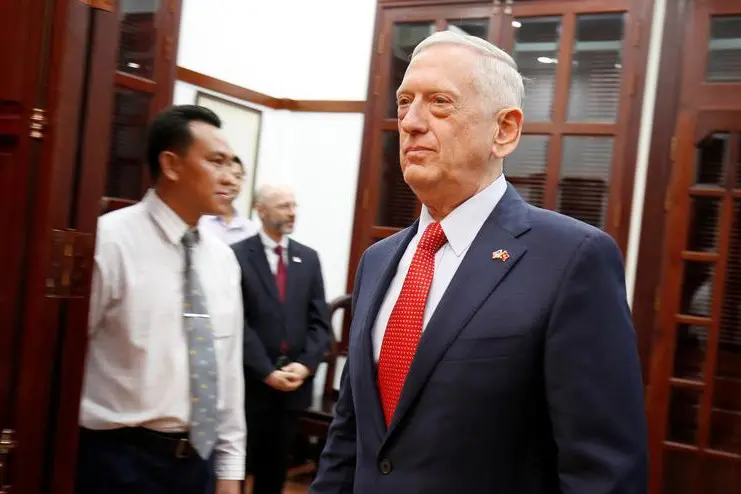PHOTO
Jim Mattis spent much of the past two years fighting Donald Trump’s worst impulses. Now he’s resigning, citing differences with the president over support for allies and his attitude toward China and Russia. His departure will ring alarm bells in European capitals and in Beijing. It may shake markets too.
Mattis is the first in the long line of departing White House officials to cite principled differences with his boss as his reason for quitting. In his blunt letter, he said the United States can’t protect its interests “without maintaining strong alliances and showing respect to those allies.” He also called for the country to be “resolute and unambiguous” toward Russia and China, which he said “want to shape a world consistent with their authoritarian model.”
The move came one day after Trump overrode Mattis and other advisors and announced he was pulling all U.S. forces out of Syria, which critics regarded as a victory for Russian President Vladimir Putin and the regime of Bashar al-Assad.
Trump initially deferred to Mattis and hailed him by his old Marine nickname, Mad Dog, but their relationship grew testy. The president fired Secretary of State Rex Tillerson and National Security Adviser H.R. McMaster earlier this year, replacing them with the hawkish Mike Pompeo and John Bolton. Mattis’ days appeared numbered after Trump overruled his recommendation for the next chairman of the Joint Chiefs of Staff. The Syrian withdrawal may have been the final straw.
Political backlash could limit any immediate policy changes. Senate Majority Leader Mitch McConnell said the move was “regrettable”, and called on Trump to pick a new defense chief who shares Mattis’ principles. Senator Tom Cotton of Arkansas, a potential replacement, signed a letter demanding that the president reconsider the Syrian withdrawal.
The departure of free-trade advocate Gary Cohn earlier this year heralded the launch of Trump’s tariff wars; with Mattis gone, the risk of a real war rises. His relationship with his Chinese counterpart Wei Fenghe helped defuse tensions after a U.S. destroyer nearly collided with a Chinese naval vessel in September; his replacement may not be so deft. Nor will Mattis be around to restrain Bolton on Iran. With global indexes approaching or in bear territory, more military tensions are the last thing rattled investors need.
CONTEXT NEWS
- U.S. Defense Secretary Jim Mattis said on Dec. 20 he would resign his position in February, citing major foreign policy disagreements with President Donald Trump. His move came one day after Trump announced he was pulling all U.S. troops out of Syria, rebuffing his top advisors.
- "My views on treating allies with respect and also being clear-eyed about both malign actors and strategic competitors are strongly held and informed by over four decades of immersion in these issues,” Mattis wrote in his resignation letter. “Because you have the right to have a Secretary of Defense whose views are better aligned with yours on these and other subjects, I believe it is right for me to step down from my position."
- Trump announced Mattis’ departure earlier in the afternoon in a tweet. “General Jim Mattis will be retiring, with distinction, at the end of February, after having served my Administration as Secretary of Defense for the past two years,” he wrote.
(Editing by Pete Sweeney and Katrina Hamlin)
© Reuters News 2018





















